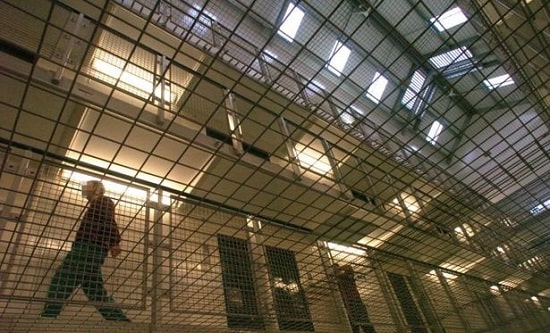
On 1 August 2008 the section of the UK Borders Act 2007 which provides for ‘automatic deportation’ of ‘foreign criminals’ came into force and more legislation against foreign national prisoners is in the pipeline. These measures were introduced by the Labour government following the Tory and press outcry in April-May 2006 over the release of foreign national prisoners which led to the resignation of Home Secretary Charles Clarke. Nicki Jameson reports.
Clarke was forced to admit that during the previous seven years 1,023 foreign national prisoners, who had completed their sentences, had been released without being considered for deportation. As FRFI wrote at the time: ‘The numbers concerned are in effect tiny – in the region of 90,000 people are released from prisons in England and Wales each year – and the danger to the public negligible, but it was more than enough for the government’s opponents and the press. Just before the local elections, for papers like the Daily Mail the combination of bogeymen was irresistible. Every attack on terrorists, asylum seekers, benefit scroungers, out-of-control youths, drug addicts, paedophiles and generalised low-life scum came together in a mighty cacophony of outrage against ‘foreign convicts’ and the soft Home Office that had let them out.’(See here)
Under the new law, non-European Economic Area (EEA) citizens who have been sentenced to a prison term of 12 months or more can now be automatically deported when their sentences end unless they can show that this would breach their rights under the Human Rights Act (HRA). This is not easy as many immigration judges take the stance that if someone with family in Britain is to be deported, their partner and children can move as well so their rights under Article 8 (family life) are not breached.
Those prisoners who can successfully prove that they should not be deported, for example because they face the threat of torture or inhuman and degrading treatment contrary to Article 3 of the HRA now face a new problem. Although they will be able to contest the ‘automatic deportation’ provisions, if they then succeed in being released from custody, when Part Ten of the Criminal Justice and Immigration Act 2008 comes into force they will find themselves subject to a new ‘special immigration status’. This ‘status’ has similarities with that accorded to the handful of non-British citizens who were first indefinitely detained without trial under the Anti-Terrorism, Crime and Security Act and, when this was declared unlawful by the House of Lords, subject to control orders.
Any non-EEA citizen who has been sentenced to two years’ imprisonment or more or to any length sentence for a ‘particularly serious’ offence (including minor theft and criminal damage) can be ‘designated’ as subject to ‘special immigration status’. So can any member of his or her family. It is a limbo status under which you have no right to be here but it is recognised that you cannot safely leave. Any rights someone who was settled in Britain had before going to prison such as rights to work, housing or benefits, are removed. The designated person may be told where to live or work, required to report to the police, the Home Office or immigration officers, and subjected to a curfew, which may be electronically monitored. They may then be sent to prison for up to 51 weeks for breach of any of these conditions. They can be provided with support similar to NASS support, but not with cash support.
EEA citizens can also be deported following imprisonment in Britain, although they are exempt from automatic deportation and the decision to remove them has to be taken on grounds of ‘public policy, public security or public health’. Irish citizens can only be deported in exceptional circumstances.
Double punishment
The reality is that Britain’s laws are racist and discriminatory. Many foreign national prisoners do in fact want to return home as soon as possible, in particular those arrested at ports of entry. However, a significant number have been living here for many years, have families, had jobs and were settled here; some arrived as tiny children, have no recollection of their country of origin and do not speak its language. Some have fled torture and successfully sought asylum. For others their only criminal offence is itself tied up with their immigration situation as the Labour Party has turned a myriad of violations of immigration law, such as using false documents to travel or work into criminal and imprisonable offences. For all these people deportation is an additional and far worse punishment than imprisonment.
FRFI opposes all immigration controls. We believe that in an imperialist nation they can never be anything other than racist. This is never more starkly demonstrated than by a system in which British citizens convicted of a crime are punished once and foreign nationals who are convicted of the same crime are punished twice.
Legal information in this article from Pressure to deport foreign national prisoners by Frances Webber, Institute of Race Relations here)
FRFI 206 December 2008 / January 2009




